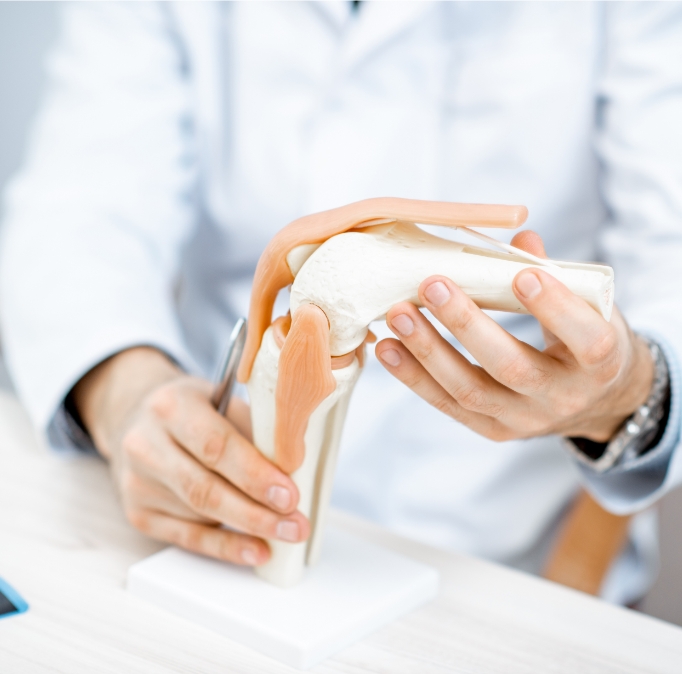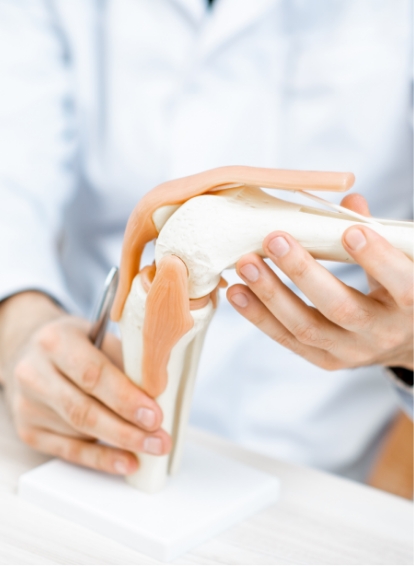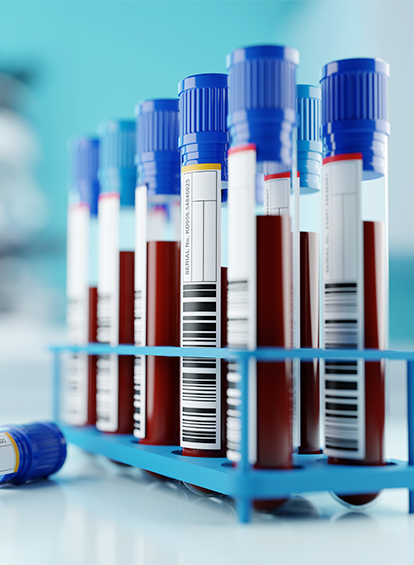Sports & Non-Surgical Orthopaedic Treatments
Arthritis
Arthritis is a condition that involves inflammation of one or more joints, leading to pain, swelling, and stiffness. It is a chronic condition that can affect any joint in the body, commonly impacting the hands, knees, hips, and spine. Arthritis may worsen over time, making it essential to manage symptoms early to maintain mobility and quality of life.
At The Clinica, our Sports & Non-Surgical Orthopaedic specialists provide personalised care to diagnose, manage, and treat arthritis, helping patients achieve relief from pain, improve joint function, and enhance overall mobility.

What is it?
Arthritis is a broad term that refers to joint inflammation and pain. The most common types are osteoarthritis, which results from wear and tear of the cartilage in the joints, and rheumatoid arthritis, an autoimmune condition where the immune system attacks the joints, causing inflammation and tissue damage. Both types lead to joint stiffness, pain, and restricted movement, though they arise from different causes and progress in unique ways.
In osteoarthritis, the cartilage that cushions the ends of the bones wears down over time, leading to friction between bones, pain, and decreased mobility. Rheumatoid arthritis, on the other hand, is characterised by immune system dysfunction, causing inflammation in the joint lining and leading to joint deformity over time if untreated.
Arthritis can significantly impact quality of life by limiting physical activity, reducing independence, and causing chronic pain. Early diagnosis and management are essential to slow the progression, reduce symptoms, and preserve joint health as much as possible.
Book an appointment
Additional Information

Causes of the condition
The causes of arthritis vary depending on the type. Osteoarthritis is often associated with aging, as the cartilage within joints naturally deteriorates over time. Additional factors, such as obesity, previous joint injuries, and genetic predisposition, can also increase the risk of osteoarthritis by placing extra stress on the joints.
Rheumatoid arthritis has an autoimmune cause, where the immune system mistakenly attacks healthy joint tissue. The exact cause of rheumatoid arthritis is unknown, but it is believed to involve genetic and environmental factors, as well as hormonal changes. Other types of arthritis, like gout, result from metabolic issues that cause crystal deposits in the joint, leading to pain and inflammation.
Arthritis can be exacerbated by lifestyle factors, including inactivity, poor posture, and repetitive joint strain. In many cases, a combination of genetic, environmental, and lifestyle factors contribute to the development and progression of arthritis.
Tests that can be done to confirm the condition
Diagnosing arthritis begins with a physical examination and a detailed review of medical history to assess joint pain, stiffness, and range of motion. During the examination, the clinician may check for signs of joint swelling, warmth, and redness, which are common indicators of inflammation. If arthritis is suspected, additional tests are often recommended to confirm the diagnosis and determine the type.
Imaging tests, such as X-rays, MRI, and ultrasound, are valuable tools for visualising joint structure. X-rays help reveal bone abnormalities, cartilage loss, and joint space narrowing, which are typical of osteoarthritis. MRI and ultrasound provide detailed views of soft tissues, including cartilage, tendons, and ligaments, allowing for a more comprehensive assessment of joint health.
Blood tests may be performed, particularly if rheumatoid arthritis is suspected, to look for markers of inflammation and specific antibodies that indicate autoimmune activity. In cases of gout, uric acid levels are also tested to identify crystal deposits in the joints.
Effective treatments
The treatment of arthritis focuses on managing symptoms, slowing disease progression, and improving joint function. For osteoarthritis, lifestyle changes like weight management, regular exercise, and dietary adjustments are often recommended to reduce joint stress and maintain mobility. Physical therapy is beneficial in strengthening muscles around the affected joints, enhancing stability and reducing pain.
Medications are commonly used in arthritis management. Non-steroidal anti-inflammatory drugs (NSAIDs) provide relief from pain and inflammation, while disease-modifying antirheumatic drugs (DMARDs) are used to slow disease progression in rheumatoid arthritis. In some cases, corticosteroid injections are administered directly into the joint to reduce inflammation and provide temporary pain relief.
Advanced treatments such as hyaluronic acid injections, which improve joint lubrication, or platelet-rich plasma (PRP) injections, which use growth factors to promote healing, may also be recommended. When conservative treatments do not provide sufficient relief, surgical options, such as joint replacement, may be considered, particularly for advanced arthritis affecting major joints like the hip or knee.
Book an appointment for an initial consultation
Booking an initial consultation at The Clinica is the first step in effectively managing arthritis. During this session, our specialist will conduct a comprehensive evaluation, discuss your symptoms, and review your medical history to identify potential contributing factors. This thorough assessment helps in forming an accurate diagnosis and understanding the severity of the condition.
If necessary, imaging and blood tests will be arranged to confirm the diagnosis and determine the type of arthritis. Once a diagnosis is established, a personalised treatment plan will be developed to manage symptoms, protect joint function, and support long-term joint health.
Frequently Asked questions
Yes, many cases of arthritis can be managed with non-surgical treatments, including medication, lifestyle changes, and physical therapy. Surgery is generally considered a last resort.
Improvement varies depending on the type and severity of arthritis and the treatment plan. Some patients may notice relief within weeks, while others require longer for significant improvement.
Yes, injections like corticosteroids and hyaluronic acid are generally safe and provide targeted relief. They are administered under careful supervision to ensure effectiveness and safety.
Maintaining a healthy weight, staying active with low-impact exercises, and following a balanced diet can help manage arthritis symptoms. Avoiding joint strain is also beneficial.
While not all types of arthritis are preventable, lifestyle factors like maintaining a healthy weight, avoiding repetitive joint strain, and exercising regularly can reduce the risk.
Specialised Clinics
General Enquiries
Please send your enquiry to us and our Practice Manager will be in touch shortly. Alternatively, if you would rather speak to us or your enquiry requires our urgent attention, please call us on 01344 946363.








